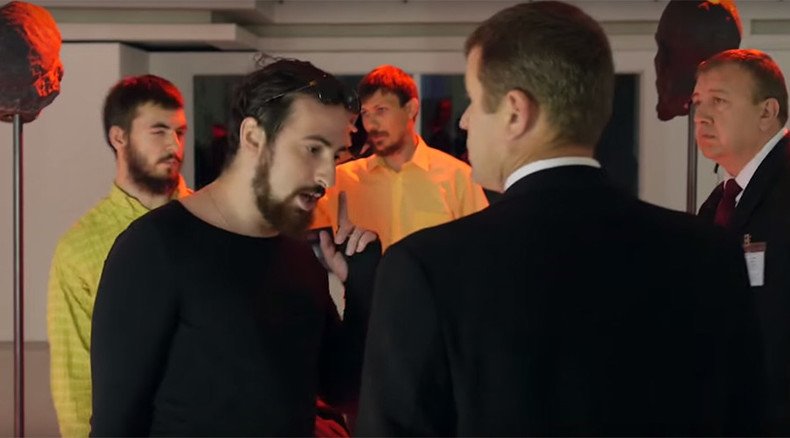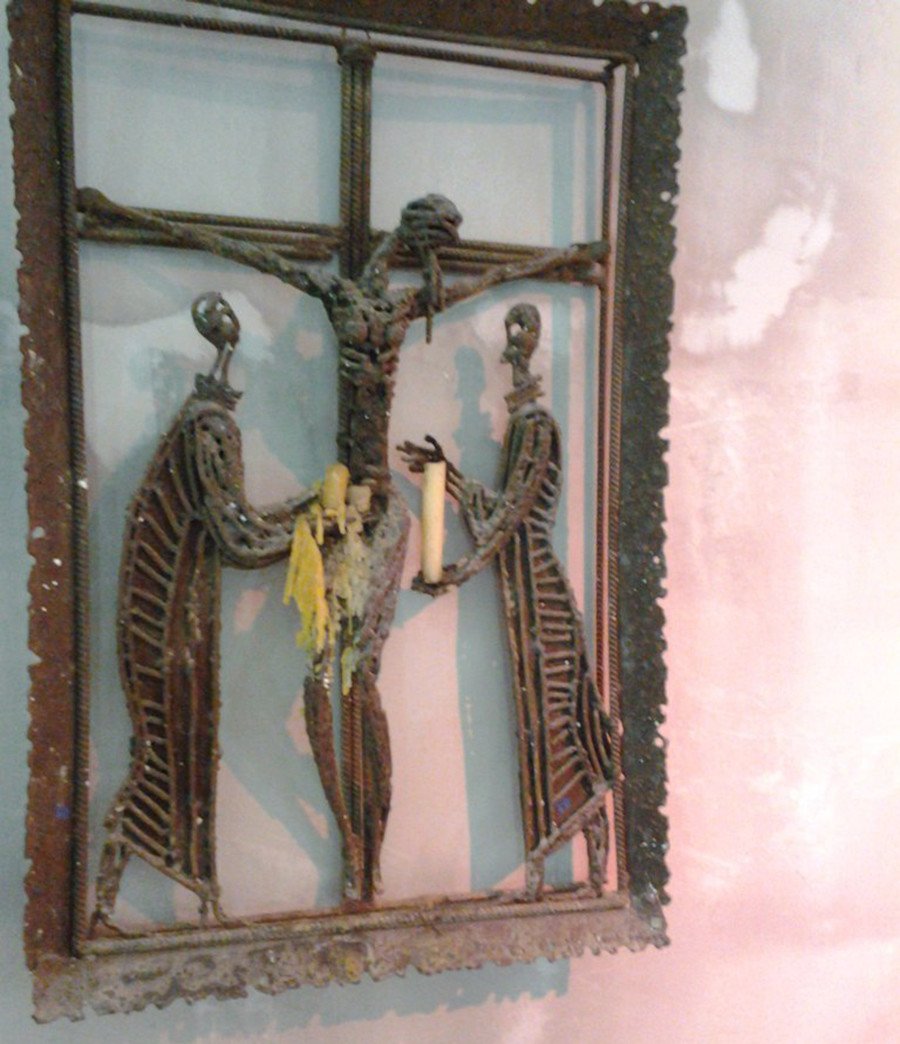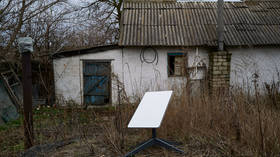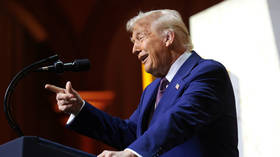Insulted believers or ISIS-like barbarians? Radical Christians raid Soviet art show in Moscow

Moscow police are investigating the circumstances of a protest by radical Christian activists at a Soviet art exhibition, claiming it was blasphemous. The protesters were accused of vandalizing several items and acting akin to “ISIS barbarians.”
The Friday altercation at the Manezh expo center, one of the biggest in the Russian capital, happened a day after an exhibition of several Soviet-era underground artists, including world-renown sculptor Vadim Sidur, was opened.
A group of seven or eight activists from the God’s Will sect came to the exhibition and engaged in a vocal argument with organizers, according to footage from the scene. They called exhibits blasphemous and demanded that the exhibition were closed to the public. One of the exhibits, a piece of linoleum with a drawing, was thrown on the floor by a female activist.
The sequence of events that followed has been disputed. A spokesperson for Manezh claimed that the activists smashed several precious statues by Sidur. The sect’s leader, Dmitry Tsronionov, who calls himself Dmitry Enteo, denied vandalizing the exhibits and said he only smashed “a plate from IKEA” on which one of the art objects was displayed.
The entire episode lasted less than 10 minutes, after which the police arrived. Both the activists and organizers of the exhibition filed complaints, with Enteo’s people claiming that the exhibits hurt their religious feelings and thus violated a Russian law that protects believers from malicious insults.
The group later explained their protest in a statement, saying the art objects displayed at Manezh are “pornographic images of Jesus Christ, dozens of blasphemous items depicting the Crucifixion, libel against Virgin Mary and the saints,” with pornographic apparently referring to Jesus loins exposed.

Among the exhibits are several depicting the crucifixion of a naked Jesus. Ironically, such a depiction is historically more accurate than the traditional variant shown in many religious works of art, since Romans stripped condemned prisoners naked before executing them on a cross. Some theologians suggest that Jesus and other people crucified in Judea were allowed to keep loincloths on as a gesture of respect to Jewish modesty sensibilities, but it remains a subject for debate.
Enteo’s protest at Manezh sparked a wave of outrage in the Russian blogosphere. He has a record of targeting art events that he and his followers deem offensive to Christianity, and is considered a marginal figure by many Russians.
The chorus of criticism was backed by some officials. Mikhail Fedotov, the chair of the presidential Council for Human Rights, said that Christian activists “should not be like the barbarians of ISIS,” referring to the previous abbreviation of the name given to the terrorist group Islamic State, which is notorious for, among other things, destroying the ancient heritage of Syria and Iraq in territory under their control.
“I am certain that our law enforcement would give an adequate evaluation of these actions,” Fetodov told Interfax.
The Russian Orthodox Church distanced itself from Enteo and his followers, who are not part of the church’s structures.
“Law must be obeyed. If Mr Tsorionov violated the law, let him answer accordingly,” Vsevelod Chaplin, a senior spokesman for the Russian Orthodox Church, told RIA Novosti. “The same applies to those insulting revered items and symbols of the faith, which include the Holy Cross.”
Some commenters online accused the organizers of the exhibition of hiring Enteo to spark a scandal and draw attention to the event, which would otherwise have remained little-known to the general Russian public.













